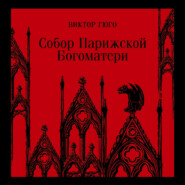По всем вопросам обращайтесь на: info@litportal.ru
(©) 2003-2024.
✖
Les Misérables, v. 1
Настройки чтения
Размер шрифта
Высота строк
Поля
"Good gracious, M. le Maire!" she at length exclaimed, "I fancied – "
She stopped, for the end of the sentence would have been disrespectful to the first part. Jean Valjean was still Monsieur le Maire with her. He completed her thought.
"That I was in prison?" he said. "I was so, but I pulled out a bar, leaped out, and here I am. I am going up to my room; go and fetch Sister Simplice, who doubtless is by the side of that poor woman."
The old servant hastened to obey; he said nothing further to her, for he was quite sure that she would guard him better than he could himself. It was never known how he managed to get into the yard without having the gate opened. He always carried about him a master-key, which opened a little side door, but he must have been searched and this key taken from him. This point was not cleared up. He went up the stairs that led to his room, and on reaching the landing, left the candle on the top stair, closed his window and shutters, and then entered the room with the candle. This precaution was useful, for it will be remembered that his window could be noticed from the street. He took a glance around him, at his table, his chair, his bed, which had not been slept in for three nights. No trace of that night's disorder remained, for the portress "had done his room;" but she had picked out of the ashes and laid neatly on the table the two iron ends of the stick and the forty-sous piece, which was blackened by the fire. He took a sheet of paper, on which he wrote, "This is the two-franc piece stolen from Little Gervais to which I alluded in court," and he laid the coin on the paper, so that it should be the first thing seen on entering the room. He took from a drawer an old shirt which he tore up, and wrapped the two candlesticks in the rags. Still, he displayed no haste or agitation, and while wrapping up the candlesticks he ate a piece of black bread, – probably the prison bread which he took with him on his escape. This fact was proved by the crumbs found on the boards when the authorities made an investigation at a later date. There were two gentle taps at the door. "Come in," he said.
It was Sister Simplice; she was pale, her eyes were red, and the candle she held shook in her hand. Violent events of destiny have this peculiarity, that however perfect or cold we may be, they draw human nature out of our entrails and compel it to reappear on the surface. In the emotions of this day the nun had become a woman again; she had wept and was trembling. Jean Valjean had just finished writing some lines on a piece of paper, which he handed to the sister, with the remark, "Sister, you will deliver this to the Curé?"
As the paper was open, she turned her eyes on it. "You may read it," he said.
She read, "I request the Curé to take charge of all that I leave here. He will be good enough to defray out of it the costs of my trial and the interment of the woman who died this morning. The rest will be for the poor."
The sister attempted to speak, but could only produce a few inarticulate sounds: at length she managed to say, —
"Do you not wish to see the poor unhappy girl for the last time, sir?"
"No," he said; "I am pursued, and if I were to be arrested in her room it would disturb her."
He had scarce said this, ere a great noise broke out on the staircase: they heard a tumult of ascending steps, and the old servant cry in her loudest and most piercing voice, —
"My good sir, I can take my oath that no one has come in here all day or all the evening, and I have not left my lodge once."
A man answered, —
"But there is a light in that room."
They recognized Javert's voice. The room was so built that the door, on being thrown open, concealed a nook in the right-hand wall: Jean Valjean blew out the light and crept into the nook. Sister Simplice fell on her knees by the table, as the door opened and Javert entered. The voices of several men and the protestations of the old portress could be heard. The nun did not raise her eyes: she was praying. Her candle was on the chimney and gave but little light, and on noticing the nun, Javert halted in great confusion. It will be remembered that the very basis of Javert, his element, the air he breathed, was reverence for all authority: he was all of one piece, and allowed no objection or limitation. With him, of course, ecclesiastical authority was the highest of all: he was religious, superficial, and correct on this point as on all. In his eyes, a priest was a spirit that does not deceive, a nun a creature who does not sin. Theirs were souls walled up against the world with only one door, which never opened except to let truth pass out. On noticing the sister, his first movement was to withdraw, but he had another duty too, which imperiously urged him in an opposite direction. His second impulse was to remain, and at least venture one question. Sister Simplice had never told a falsehood in her life: Javert was aware of this, and especially revered her for it.
"Sister," he asked, "are you alone in the room?"
There was a terrible moment, during which the old servant felt as if she were going to faint: the sister raised her eyes and said, "Yes."
"In that case," Javert continued, "I beg your pardon for pressing you, but it is my duty, – you have not seen this evening a person, a man who has escaped and we are seeking, – that fellow of the name of Jean Valjean. Have you seen him?"
The sister answered "No."
She had told two falsehoods, one upon the other, without hesitation, rapidly, as if devoting herself.
"I beg your pardon," said Javert; and he withdrew with a deep bow.
Oh, holy woman! it is many years since you were on this earth; you have rejoined in the light your sisters the virgins and your brothers the angels; may this falsehood be placed to your credit in Paradise!
The sister's assertion was so decisive for Javert that he did not notice the singular fact of the candle just blown out, and which was still smoking on the table. An hour later a man, making his way through the fog, was hurrying away from M – in the direction of Paris. This man was Jean Valjean; and it was proved, by the testimony of two or three carriers who met him, that he was carrying a bundle and was dressed in a blouse. Where did he procure this blouse from? It was never known; but a few days before, an old workman had died in the infirmary of the sailors, leaving only a blouse. It might have been that one.
One last word about Fantine. We have all one mother, the earth, and Fantine was given back to that mother. The Curé thought he was doing his duty, and perhaps did it, in keeping as much money for the poor as he possibly could out of what Jean Valjean left him. After all, who were the people interested? A convict and a street-walker: hence he simplified Fantine's interment, and reduced it to what is called the "public grave." Fantine was therefore interred in the free corner of the cemetery, which belongs to everybody and to nobody, and where the poor are lost. Fortunately God knows where to look for a soul. Fantine was laid in the darkness among a pile of promiscuous bones in the public grave. Her tomb resembled her bed.
END OF PART FIRST
notes
1
An untranslatable pun based on chêne-liège and peau.

















